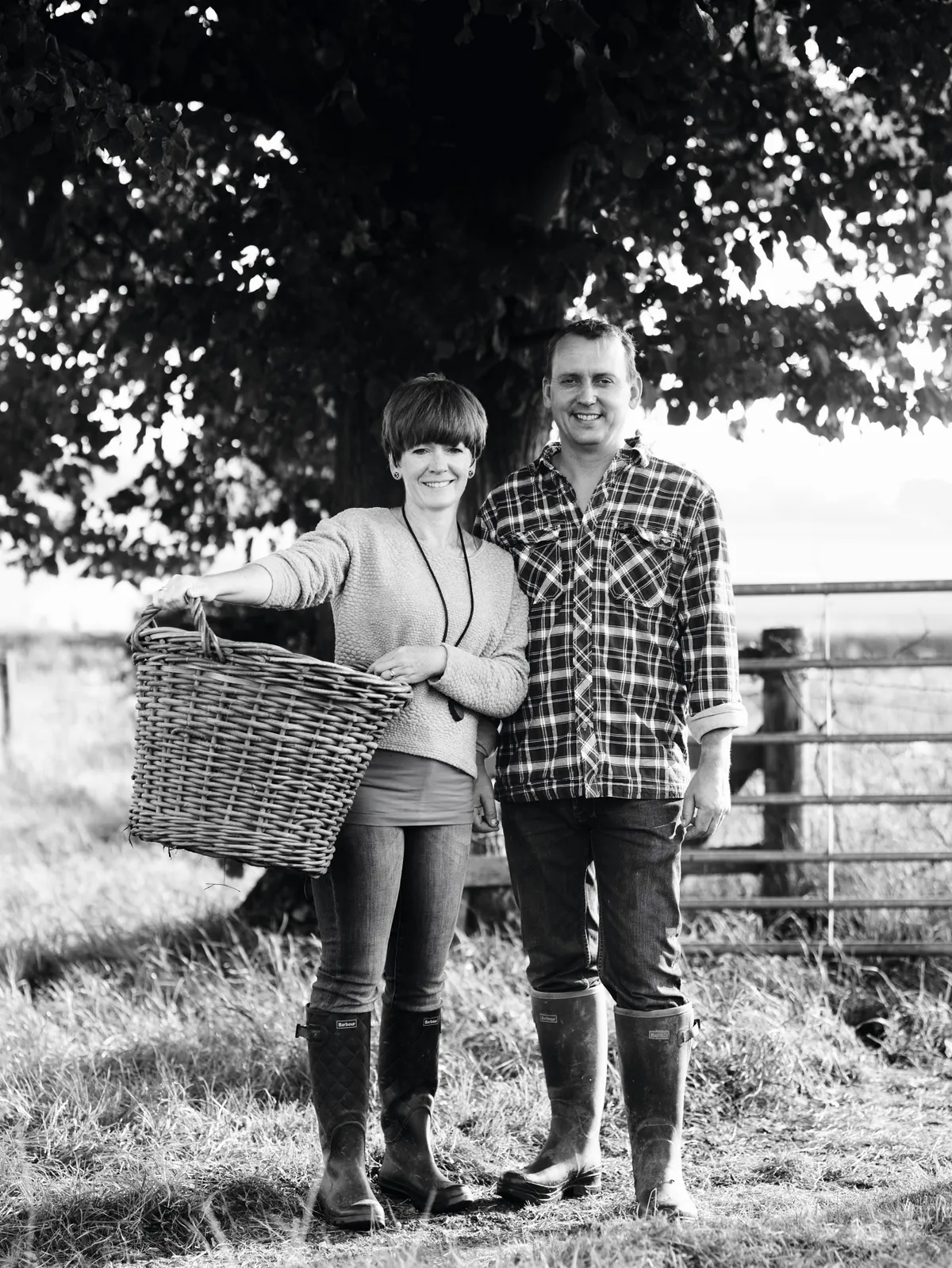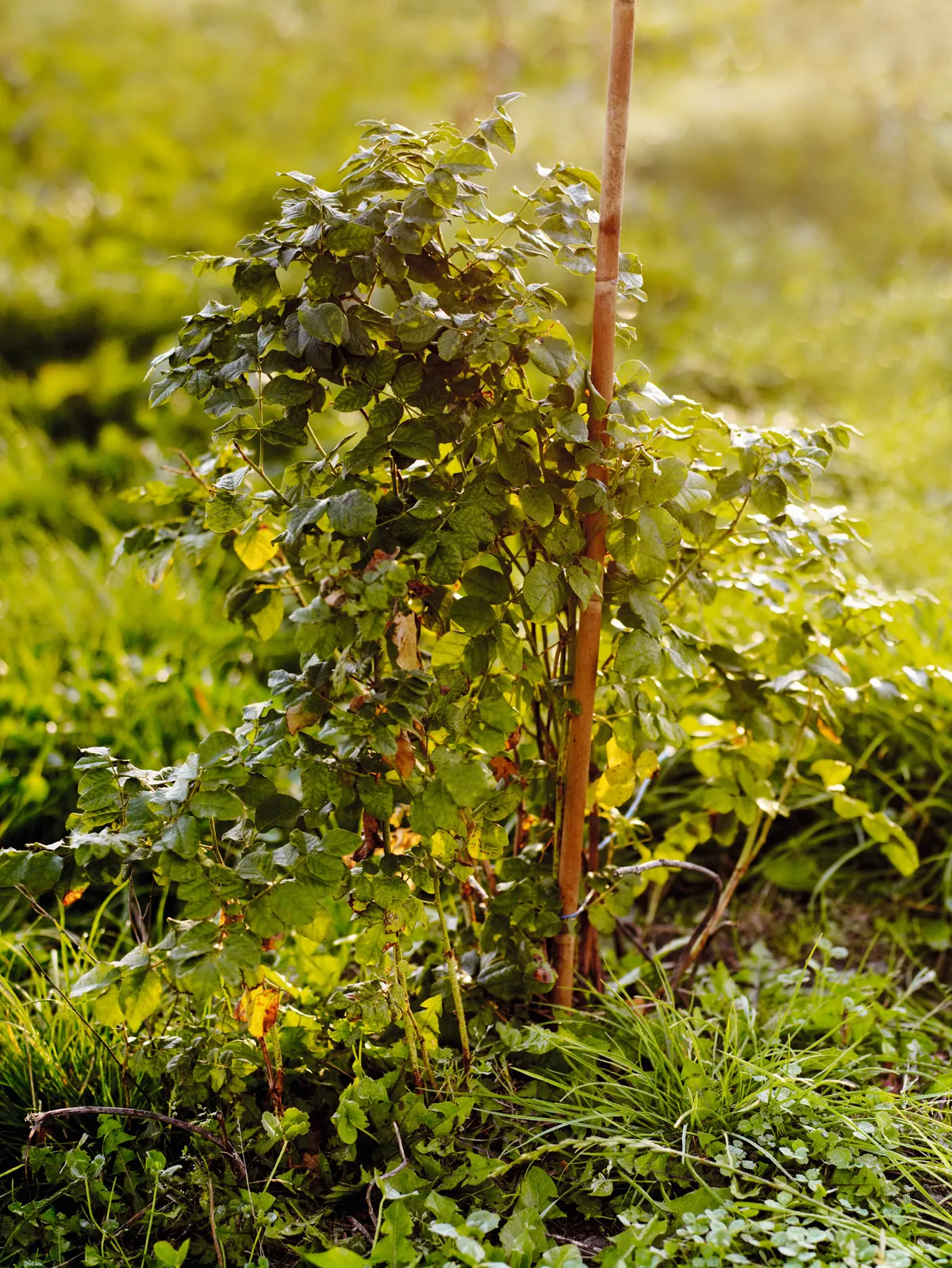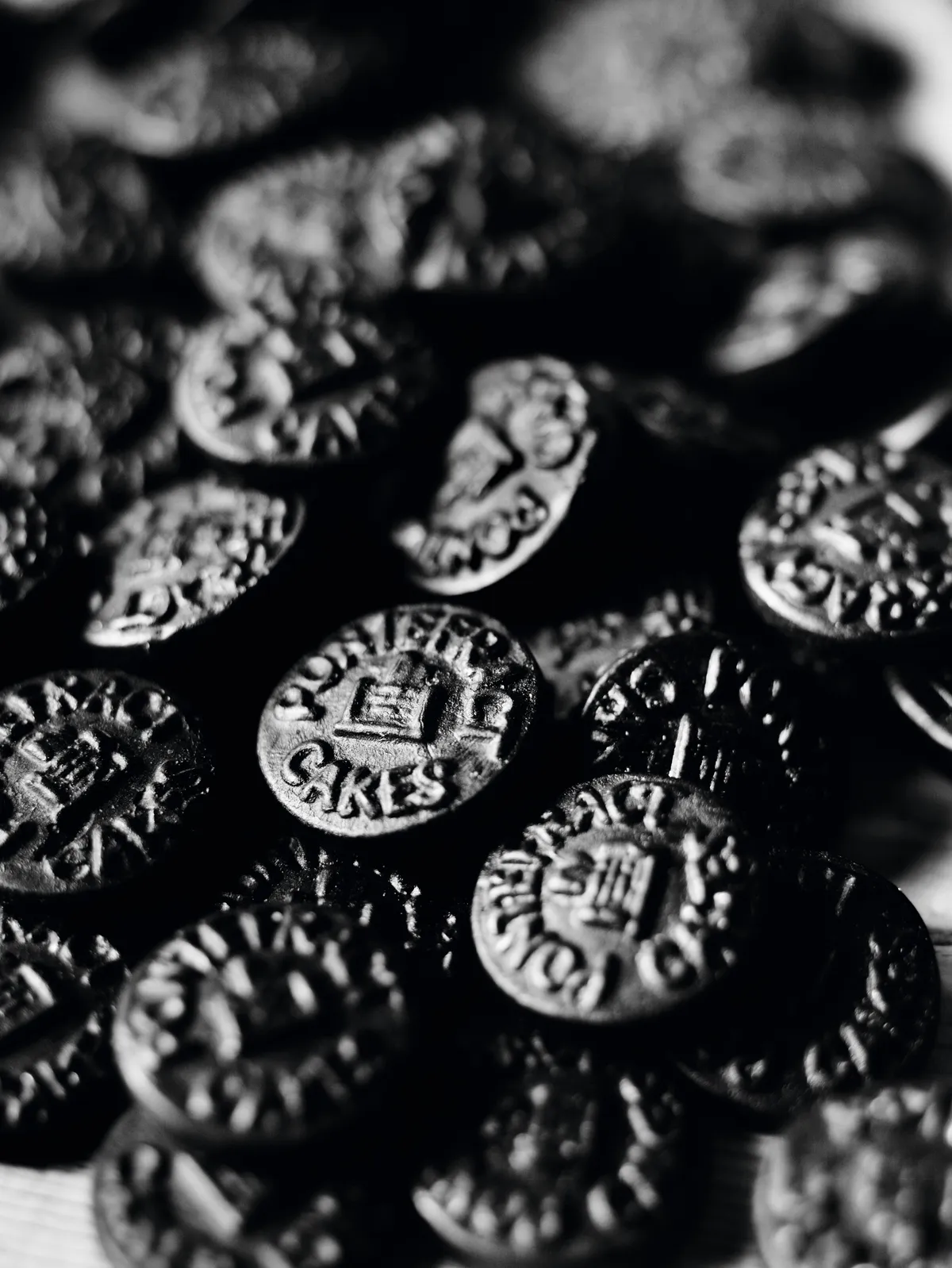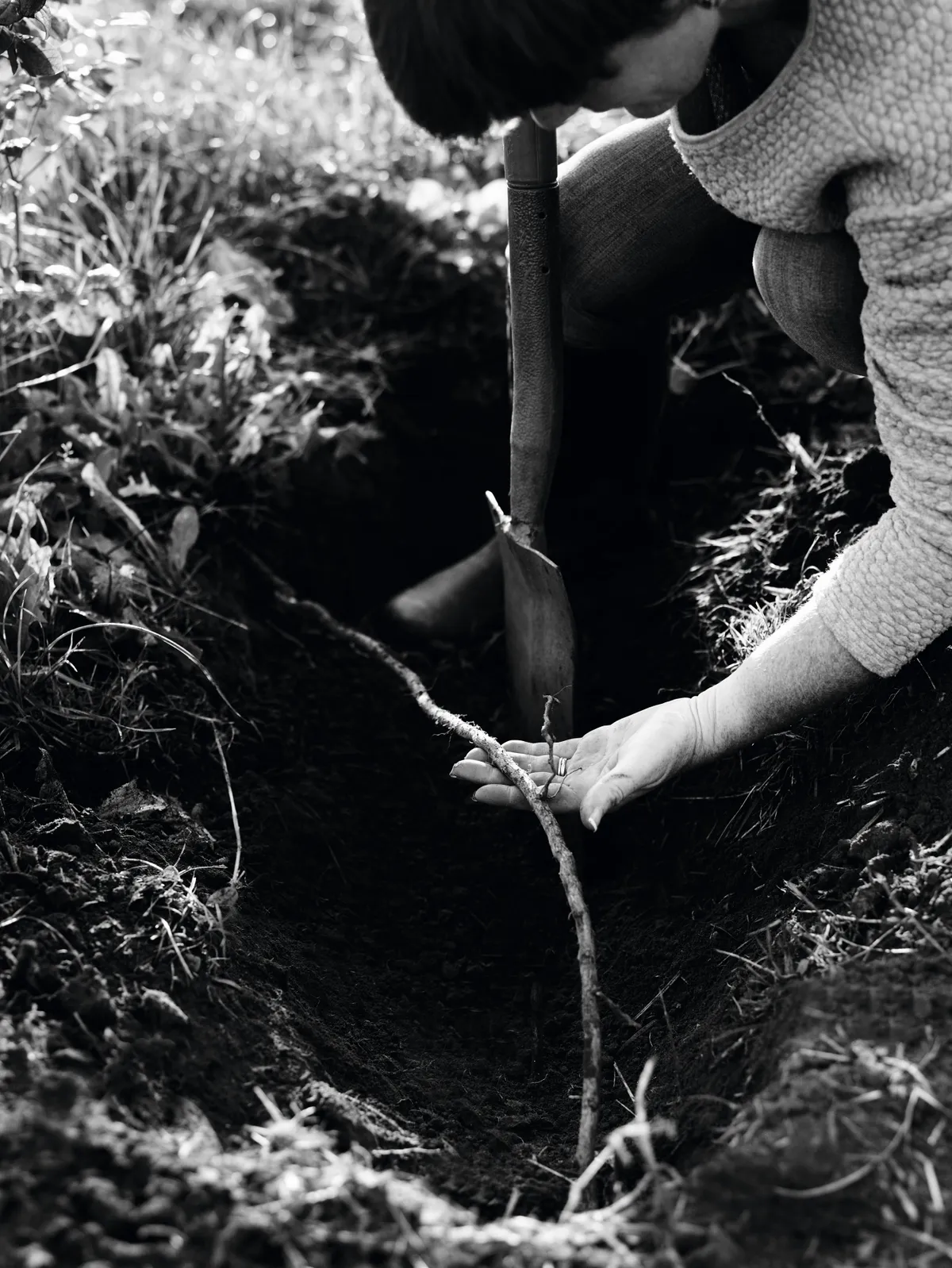Robert and Heather Copley are growing liquorice root on their farm near Pontefract. If you eat the root straight from the ground and chew it slowly, a fresh taste somewhere between sweetness and salt emerges.

The Copley's have been approached by perfumiers, tea producers, artisan brewers and top chefs across the country, all eager for something partly exotic and partly nostalgic, and about as far away from the stick-to-the-roof-of-your-mouth childhood sweets, as you can get.
What is liquorice?

Glycyrrhiza glabra (literally ‘sweet root’) is a member of the pea family that originates in the east Mediterranean and southwest Asia. Britons have had a taste for ‘Spanish’ (as it is colloquially known), for nearly a thousand years, when it’s thought that Crusaders returning from the Middle East brought it back with them mainly for medicinal purposes – it’s a powerful anti-inflammatory, as well as aiding digestion and soothing coughs, headaches and colds. The monks at Pontefract Priory grew it extensively in medieval times, the deep, sandy soil mimicking its native growing conditions.
In 1700 a local chemist, George Dunhill, mixed the root with sugar to form a lozenge, the origination of the jet-black, embossed Pontefract cake still made today (but with imported liquorice). The town became synonymous with liquorice, with residents growing it on plots of land, or garths, behind their houses. During the 19th century, the town employed thousands of people in its commercial manufacture, but anecdotal evidence suggests that during the Second World War, American GIs introduced a treat-starved nation to chocolate, sounding the death knell of liquorice. Local producers went out of business until none were left. Until now.

A new generation of liquorice growers
The Copley family has been in dairy and arable farming for over 140 years. A little over a decade ago, Heather, an agronomist by training, started hearing stories from their farm shop customers about eating wet liquorice as children. “They’d reminisce about chewing the root and the amazing taste. As many of them were in their eighties, we thought if we don’t revive this, it’ll die out forever.” They began growing it experimentally ten years ago, with roots sourced from local people, many of whom still grow it in their gardens. It takes five years to get a crop, but disaster struck after four, when contractors accidentally dug it up. “We replanted it in a safer spot up the hill. Our next problem was rabbits, who were mad about the sweet roots, so we had to put up an electric fence.”
After another three years Heather couldn’t wait any longer. “I had to go and see what it was doing. The root was about 30cm long and translucent, with almost a honey taste.” Last September the Copleys’ patience paid off and the first substantial roots were harvested with a taste so different from standard liquorice that it was like another crop. As we stood in the fields at first light chewing on the fresh root, Heather told me that if you’ve got the right conditions – a deep, free-draining sandy soil that warms up quickly in spring and gets plenty of sun – the plant will thrive. And how it has. She dug up a root two metres long, unravelling it like something out of children’s fairy tale, and still didn’t reach the end. Historical records show that eight metres wouldn’t be unusual. The Copleys’ ambition is to bring liquorice growing back to the area and judging by the reaction to their first harvest, they might have just rediscovered its sweet spot.

Useful information
The Copleys sell their wet liquorice and other liquorice products at their farm shop, Ravensknowle Farm, Pontefract Road, Pontefract, West Yorkshire WF7 5AF. Tel 01977 600200, farmercopleys.co.uk
Words Caroline Beck
Photos Andrew Montgomery